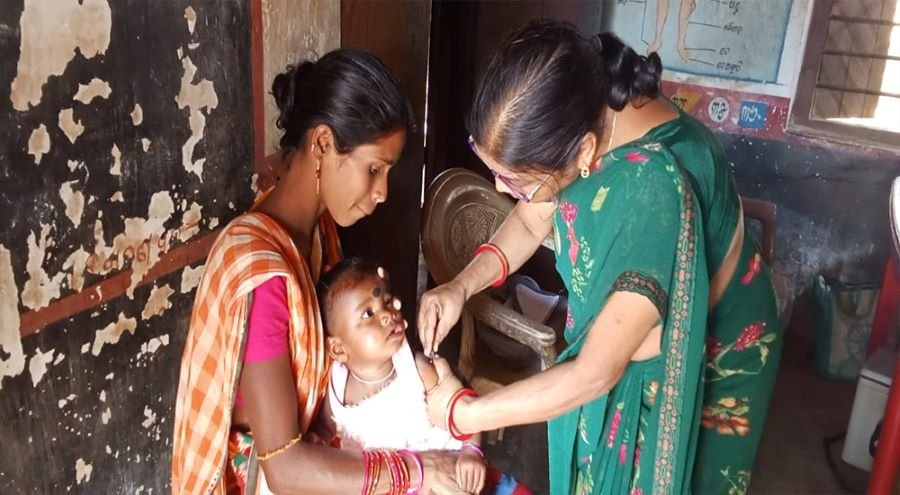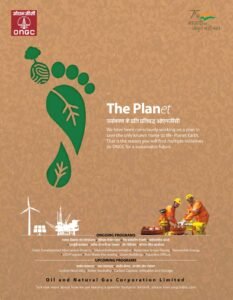INITIATIVE
Tackling malnutrition through collaboration and innovation
An estimated 70 per cent of under-five children, 56 per cent of adolescent girls and 58 per cent of pregnant mothers are anaemic in India. The Wadia Group through Britannia Nutrition Foundation and Wadia Hospitals is doing its best to find sustainable solutions for malnutrition among children by partnering with state governments and engaging with communities.
According to a data by UNICEF, every two out of four children under the age of five years suffer from malnutrition in India, while the data from 1990- 2015 showed one out of four children suffered from it. There has been a two fold increase, which is quite alarming and a threat to the future generation. Understanding the gravity of the situation, the Wadia Group took a two-pronged approach to deal with the issue. Wadia Hospitals conducted medical outreach programmes and was supported by the Britannia Nutrition Foundation (BNF) through its nutrition fortification programme. The Wadia Group’s philosophy is aimed at supporting ‘every child’s right to nutrition and growth’. The Group’s programmes are therefore focused on supplementing the disadvantaged with micro-nutrients and vitamins through an off-the-shelf, convenient and ready-to-eat product, which helps in providing a malnutrition free childhood for India’s children.
Nourishing India’s children
The Britannia Nutrition Foundation was set up in 2009 as an independent, autonomous, non-profit body to contribute to every child’s right to nutrition and growth by implementing sustainable, replicable programmes, pursuing innovation and research, addressing core and allied causes for malnutrition. BNF focuses on nourishing children, mothers and innovation in nutrition. Under nourishing children and mothers programme, the focus is on addressing anaemia through fortified carriers—biscuits, counselling for better nutrition and addressing nondirect causes of malnutrition such as hygiene and sanitation. The research and development of fortified products to address malnutrition forms the foundation of the innovation in nutrition. Over the last eight years, the distribution of iron fortified carriers (biscuits) which began in 2008 have cumulatively benefited 5,00,000 children. BNF tied up with several organizations such as Navjyoti Foundation, Naandi Foundation, Akshay Patra Foundation, Tamil Nadu state government, Wockhardt Foundation and KN Nutrition Mission (Shimoga district) to distribute iron fortified biscuits to school-going children in the age group of 7-9 years under the theme ‘nourishing children.’ In 2014-15, a partnership with the East Delhi Municipal Corporation involved a field study with the All India Institute of Medical Sciences (AIIMS) on the distribution of iron fortified biscuits to 50,000 children in the age group of 7-9 years. This study showed hemoglobin (HB) increase ranging from 1g/dl to 2.74g/dl.
Government of Maharashtra on the Melghat Nutrition Project, a threeyear MoU with the Women & Child Development (WCD) Department. The anganwadi workers are trained to upload weight data of every child every month. So far 25,370 children under the age of five years have been mapped and the data that has been transcribed and uploaded on the website for access by Health Department and district officials. It has helped identify severely acute malnourished (SAM) and moderately acute malnourished (MAM) children. At the core of the programme is the emphasis on availability of real-time, accurate data on nutrition status of children under five years of age and helping improve the nutritional status of children in a time-bound and systematic manner. In addition to this, BNF works on health and nutrition-focused activities around nine Britannia factory locations across six states. The Jhagadia programme in Gujarat focuses on improving access to government services for child nutrition and reducing malnutrition in children under the age of five. The programme is currently underway in 16 villages within the 10-50 km radius of the factory with over 7,000 households and is benefiting 378 children under the age of five. The Perundurai programme in Tamil Nadu on improving nutrition amongst adolescent girls is currently being implemented in 10 villages with a population of 3,500 households and benefits 475 adolescent girls between the ages of 12-19. The district development officer, district health officer and the ICDS programme officer for bharuch district are involved in the Jhagadia programme to improve access to government services for child nutrition and reducing malnutrition. The programme aims to increase attendance and enrolment in anganwadi centres, helps workers maintain proper monthly records on children’s weight and IEC to encourage consumption of food provisions distributed for in-home consumption; decrease the number of moderately and severely underweight children and increase in consumption of nutritious food. Using behavioural changes in lifestyle, access to government schemes, dietary habits, and health and hygiene, the Perundurai programme aims to reduce anaemia amongst adolescent girls.
BNF aims to contribute to Every Child’s right to Nutrition and Growth by implementing sustainable, replicable programmes, pursuing product innovation and research, and addressing core and allied causes for malnutrition. The R&D team at Britannia leads the development of fortified products to address malnutrition which pays special attention to the formulations of fortified biscuits right down to stringent dosage applications to provide age and deficiency appropriate nutrition.
Comprehensive health care
Established in the late 1920s, the Wadia Hospitals—Bai Jerbai Wadia Hospital for Children (BJWHC) and Nowrosjee Wadia Maternity Hospital—are integral part of the philanthropic activities of the Wadia Group. Both the hospitals are heritage structures and each hospital sees more than 10,000 inpatients and over 1,00,000 outpatients annually. The hospital also conducts medical outreach programmes to support communities in the outskirts of Mumbai who cannot afford to avail the services within the city. The medical outreach programme has staff from the hospital—doctors, lab technicians—travelling down to the tribal-dominated Palghar district, 110 km from Mumbai, to provide preventive health care aid to the adivasis (Warlis, Dubla, Dhodi), Bhandari, Agri (Mangela) and Bari communities. At least 500 severely acute malnourished and moderately acute malnourished children from five villages (Aine, Ashagad, Ganjad, Saivan and Vangaon) were targeted. Aganwadi sevikas (volunteers) were trained on the fortified product, age appropriate dosage of nutrient to be provided as well as documenting information by 24-hour dietary recall method using diet charts. Using public-private partnerships to find sustainable solutions for malnutrition by partnering with state governments; engaging consistently and deeply with communities around the factories through factory and partnerled programmes, the Wadia Group, through BNF and Wadia Hospitals, aims to continue its journey to build a healthy and well-nourished India.






























